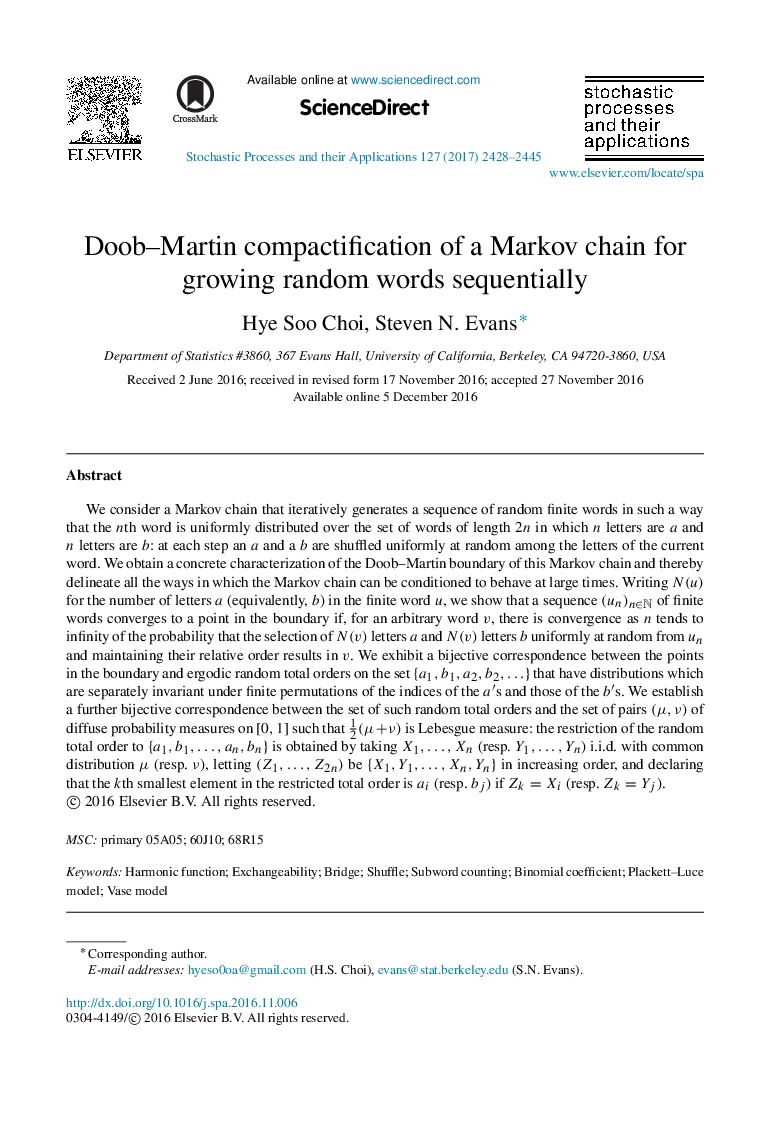| کد مقاله | کد نشریه | سال انتشار | مقاله انگلیسی | نسخه تمام متن |
|---|---|---|---|---|
| 5130071 | 1378656 | 2017 | 18 صفحه PDF | دانلود رایگان |

We consider a Markov chain that iteratively generates a sequence of random finite words in such a way that the nth word is uniformly distributed over the set of words of length 2n2n in which nn letters are aa and nn letters are bb: at each step an aa and a bb are shuffled uniformly at random among the letters of the current word. We obtain a concrete characterization of the Doob–Martin boundary of this Markov chain and thereby delineate all the ways in which the Markov chain can be conditioned to behave at large times. Writing N(u)N(u) for the number of letters aa (equivalently, bb) in the finite word uu, we show that a sequence (un)n∈N(un)n∈N of finite words converges to a point in the boundary if, for an arbitrary word vv, there is convergence as nn tends to infinity of the probability that the selection of N(v)N(v) letters aa and N(v)N(v) letters bb uniformly at random from unun and maintaining their relative order results in vv. We exhibit a bijective correspondence between the points in the boundary and ergodic random total orders on the set {a1,b1,a2,b2,…}{a1,b1,a2,b2,…} that have distributions which are separately invariant under finite permutations of the indices of the a′a′s and those of the b′b′s. We establish a further bijective correspondence between the set of such random total orders and the set of pairs (μ,ν)(μ,ν) of diffuse probability measures on [0,1][0,1] such that 12(μ+ν) is Lebesgue measure: the restriction of the random total order to {a1,b1,…,an,bn}{a1,b1,…,an,bn} is obtained by taking X1,…,XnX1,…,Xn (resp. Y1,…,YnY1,…,Yn) i.i.d. with common distribution μμ (resp. νν), letting (Z1,…,Z2n)(Z1,…,Z2n) be {X1,Y1,…,Xn,Yn}{X1,Y1,…,Xn,Yn} in increasing order, and declaring that the kth smallest element in the restricted total order is aiai (resp. bjbj) if Zk=XiZk=Xi (resp. Zk=YjZk=Yj).
Journal: Stochastic Processes and their Applications - Volume 127, Issue 7, July 2017, Pages 2428–2445